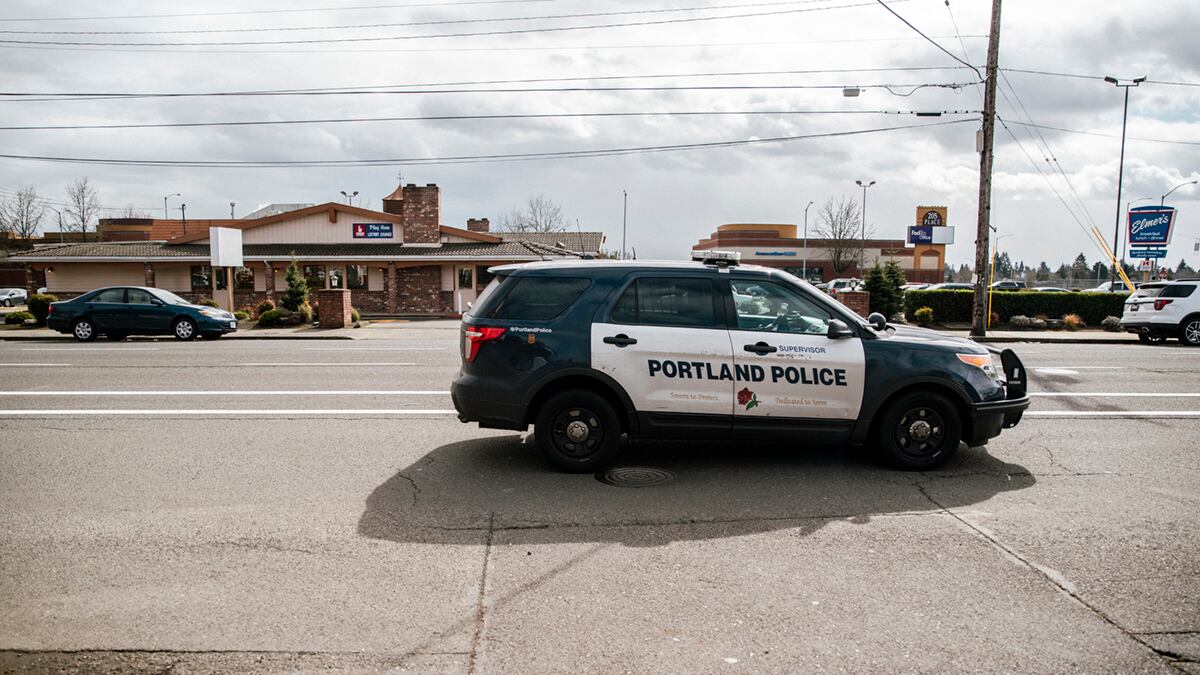On a warm Tuesday night this summer, two friends’ day of sightseeing in the Columbia River Gorge ended, unexpectedly, at gunpoint.
Colleen McDonald, 31, and Hilary Rossio, 30, say they were driving home on South Bertha Boulevard on Aug. 29 when, without warning, a Portland police SUV rammed into the rear of their silver Ford Fusion, sending it spinning. Another SUV pinned them inside the car and a moment later a half-dozen cops had them surrounded with guns raised, yelling, “Put your fucking hands up!”
“I thought we were going to die,” Rossio tells WW. “We kept telling them, ‘You have the wrong person!’”
The precision immobilization technique, or PIT, maneuver described by McDonald and Rossio to WW, and in a separate tort claim notice sent to the city threatening legal action, is not uncommonly used by police to disable fleeing vehicles.
But in this case, McDonald and Rossio were doing anything but fleeing—McDonald was driving at the speed limit down Bertha Boulevard toward Rossio’s apartment in Southeast Portland, they write in their legal claim. In fact, they had no idea the cops were even trying to stop them: The pursuing police cruiser never turned on its lights or siren, they say.
The City Attorney’s Office and the Portland Police Bureau declined to comment.
In their legal claim, McDonald and Rossio offer a theory of why police rammed their car. Earlier that night, another light-colored vehicle, a two-door coupe, nearly hit their car as it sped around them on Interstate 84. They had to swerve out of the way onto the shoulder to avoid it.
After cops approached McDonald’s car and saw the women inside, they stood down. They explained that they were looking for a man who’d been evading police, and that they had been “confused” why McDonald had been driving the speed limit, Rossio says. A sergeant arrived 15 minutes later and formally apologized, Rossio says.
The two women are now pursuing legal action against the city. “Given that the police knew the suspect was a man, had a good view of the actual car involved in the crime and knew that the description of the suspect did not include people traveling at the speed limit, it is clear that the Portland Police’s assault, battery and wrongful detention of Colleen and Hilary was extremely reckless,” their lawyer, Michael Cox, wrote in a tort claim notice to the city attorney.
Cox says, if necessary, he’ll file a lawsuit alleging violations of the two women’s civil rights as well as “deliberate indifference” by the city. McDonald and Rossio, who both work in the cannabis industry, say they want the city to pay their medical bills for their ongoing neck and back pain—Rossio ended up going to the emergency room—as well as $5,000 to patch up the dented Fusion.
The legal threat references four other times in recent years that misidentification by Portland police had serious, sometimes deadly, consequences. Immanueal Clark-Johnson was killed late last year after being shot in the back by a police officer wielding an AR-15. He had been misidentified as the suspect in an armed robbery, according to a legal notice from his family sent to the city earlier this month.
“This just keeps happening,” Rossio says. “I just want to know: Wwhat are we going to do in the future to stop it?”

